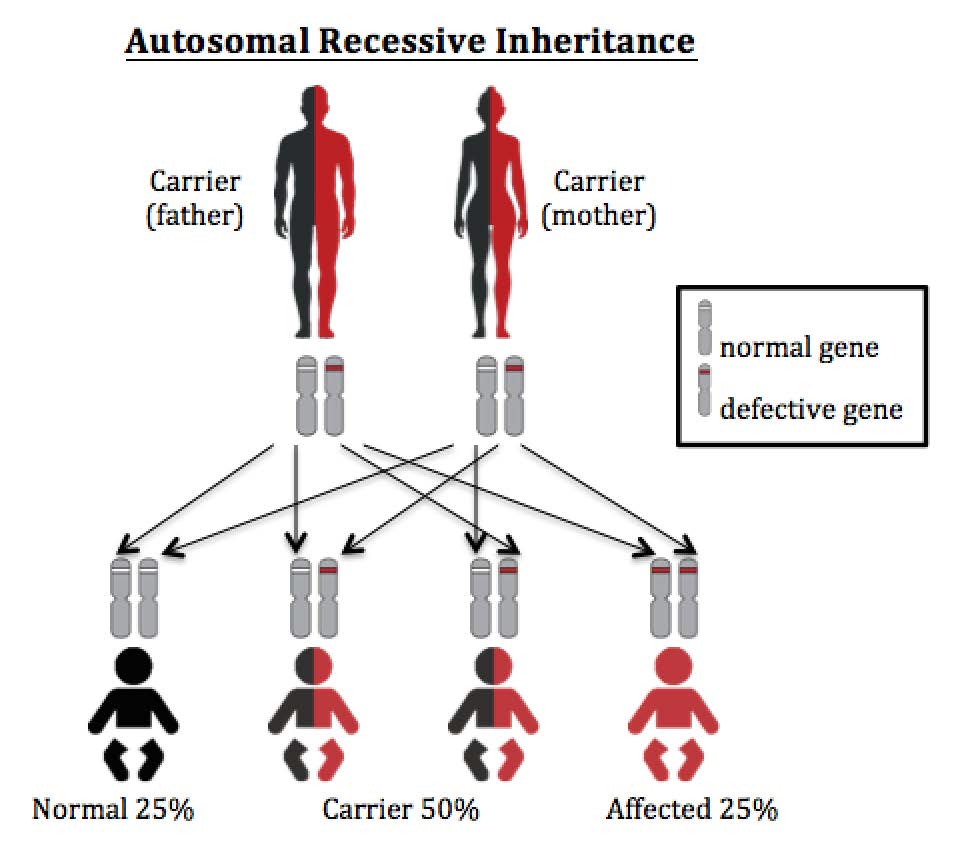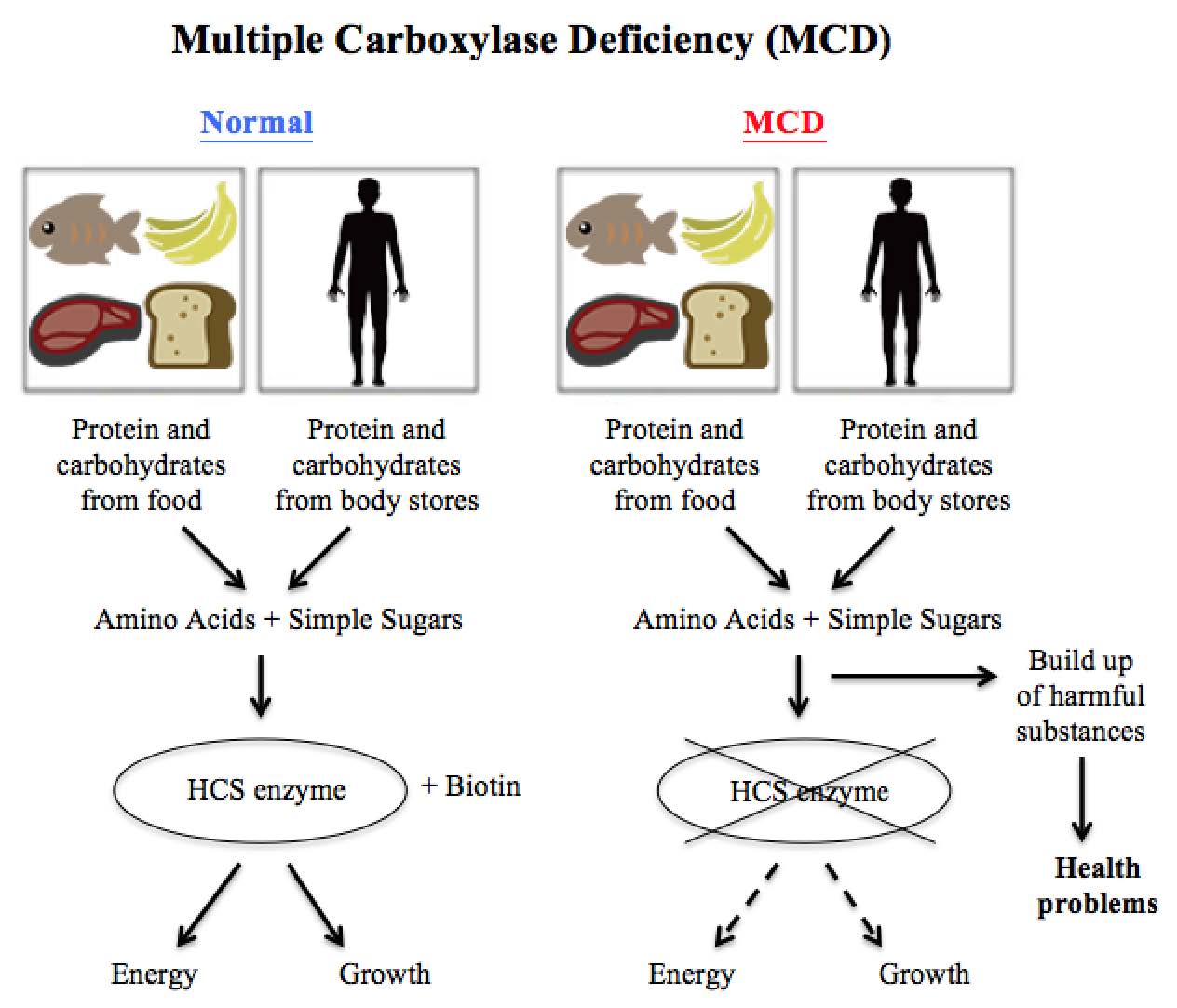
Multiple carboxylase deficiency is an inherited condition where the body is unable to use and recycle the vitamin biotin due to the deficiency of an enzyme called "holocarboxylase synthetase" (HCS). The body requires biotin to help process carbohydrates, proteins and fats. When this occurs, harmful substances can build up in the body and cause serious health problems.

The original graphic is converted into the following text version for your easy access to the information.
Multiple Carboxylase Deficiency (MCD)
Our body breaks down protein and carbohydrates from food into amino acids and simple sugars when we eat, and breaks down protein and carbohydrates from body stores into amino acids and simple sugars during prolonged fasting and stress. When functioning normally, our body will produce HCS enzyme which works with vitamin biotin to convert amino acids and simple sugars into energy for our body's use and growth. In people with MCD, HCS enzyme is either missing or not working properly, making the amino acids and simple sugars cannot be utilized properly. As a result, certain harmful substances also build up in the body, causing serious health problems.
Everybody has two copies of genes, one from each parent, which tell the body how to make specific enzymes.
Multiple carboxylase deficiency is an autosomal recessive disease. Only when babies inherit two faulty copies of the gene for multiple carboxylase deficiency from parents, the enzyme made does not work properly or is not even made at all.

The original graphic is converted in to the following text version for your easy access to the information.
Autosomal recessive inheritance
In autosomal recessive diseases, people with two faulty copies of gene (one from father and one from mother) will develop symptoms. People with only one faulty copy of gene are normal and they are called disease carriers. MCD is inherited in autosomal recessive manner.
If both parents are MCD carriers, for each pregnancy (no matter it is a baby boy or girl), there is a 25% (1 in 4) chance that the child has 2 copies of normal gene (who is not affected), a 50% (1 in 2) chance that the child has one normal and one faulty gene who is a carrier like the parents, and a 25% (1 in 4) chance that the child has two copies of faulty gene who is at risk for MCD.
In severe multiple carboxylase deficiency, symptoms may start as early as from a week to a few months after birth.
Some children with severe multiple carboxylase deficiency can experience metabolic crisis. These crises are usually triggered when the body is under stress, such as when there is an infection or when there are prolonged periods without food.Early signs include:
Some children may experience severe symptoms which include:
Babies with multiple carboxylase deficiency benefit significantly from early treatment and can have healthy and active lives.
Taking biotin supplement can prevent symptoms from occurring. This is a life-long treatment, and usually no dietary restrictions are required.
It is important that babies with severe multiple carboxylase deficiency be fed regularly and do not go for long periods without eating.
It is also important to discuss and design a possible plan with your doctor and dietician beforehand, in order to provide extra sugary foods during illness or other times when your child is not feeding well to prevent a metabolic crisis.
If you are worried that your baby is ill, it is important to follow medical advice. Bring your baby to your local accident and emergency department immediately. Take any information that you have been given about multiple carboxylase deficiency, including this pamphlet, to the hospital with you.
For general queries on Newborn Screening Programme for Inborn Errors of Metabolism, please call 5741 4280 (Department of Clinical Genetics, Hospital Authority)
July 2024
Hospital Authority